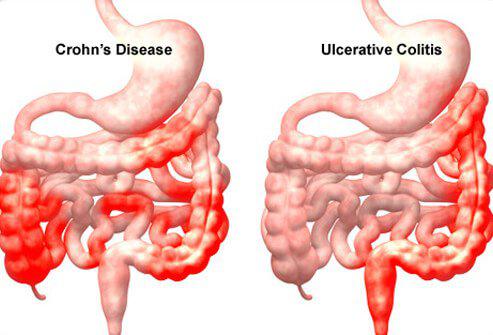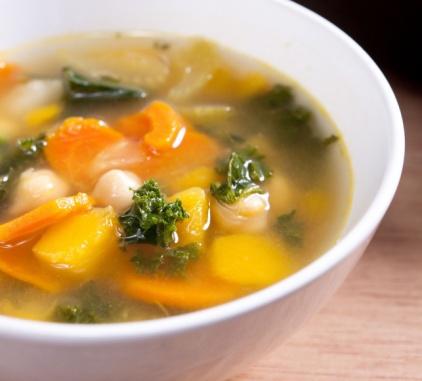Ulcerative colitis and Crohn's disease are two common types of inflammatory bowel disease (IBS). Both conditions are characterized by an abnormal immune response against the intestinal tract. When you have Crohn's disease, it means that you have inflammation of the small intestine. With this disease, your body would be in no position to digest food and absorb important nutrients. Over time, this would lead to malnutrition and expose you to all sorts of health problems. Therefore, it is important to learn some diet tips for Crohn's disease to manage your condition in a more effective way.

Important Diet Tips for Crohn's Disease
People with Crohn's disease soon realize that their symptoms become worse when they eat certain foods. The response is often more severe when you already have an attack. It is therefore important to identify your food triggers and avoid them as much as possible to improve your condition. Here are some important diet tips to reduce your symptoms and improve intestinal healing.
1. Include Almond Milk in Your Diet
When you have Crohn's disease, you may also be lactose intolerant. What it means is that you will not be able to digest milk and other dairy products. A good alternative would be to opt for almond milk. Made from almonds, it provides you with important nutrients without aggravating your symptoms. You can also find almond milk fortified with calcium. Along with much-needed calcium, you will also get a good dose of vitamin E and D from each serving of almond milk. The good thing is that almond milk is free of any saturated fat or cholesterol. It is also low in calories, so you can always include in your diet for Crohn's disease.
2. Go for Eggs
 Eggs provide you with loads of easily digested protein, and that is the reason why people with Crohn's disease should find a way to include eggs in their diet. You can opt for hard-boiled, scrambled, or soft-cooked eggs. You can always opt for eggs and toast while dealing with a flare up. In fact, you can include eggs in anything non-greasy and enjoy it when you have Crohn's disease.
Eggs provide you with loads of easily digested protein, and that is the reason why people with Crohn's disease should find a way to include eggs in their diet. You can opt for hard-boiled, scrambled, or soft-cooked eggs. You can always opt for eggs and toast while dealing with a flare up. In fact, you can include eggs in anything non-greasy and enjoy it when you have Crohn's disease.
3. Increase Your Intake of Oatmeal
One of the best diet tips for Crohn's disease is to include oatmeal in your diet. Interestingly, you can eat oatmeal to prevent a flare up and enjoy it even when you are already experiencing some gastrointestinal symptoms. Oatmeal is a great choice because it provides you with soluble fiber – it absorbs water in your GI tract and bulks up your stool. It also moves slowly through your GI tract giving your body more time to digest important nutrients.
4. Enjoy a Bowl of Veggie Soup
 Most people with Crohn's disease are usually afraid of eating veggies because they contain insoluble fiber. They usually feel comfortable eating white carbohydrate products, but those products do not have a high nutritional value. The best thing is to opt for pureed veggies like butternut squash, pumpkins, parsnips, and carrots. This way, you will get essential nutrients without developing any complications.
Most people with Crohn's disease are usually afraid of eating veggies because they contain insoluble fiber. They usually feel comfortable eating white carbohydrate products, but those products do not have a high nutritional value. The best thing is to opt for pureed veggies like butternut squash, pumpkins, parsnips, and carrots. This way, you will get essential nutrients without developing any complications.
5. Eat Fish and Poultry
While dealing with Crohn's disease, it is important to ensure that you are getting enough protein from dietary sources. Ideally, 25% of the calories you take should come from protein. You can always opt for seafood because it provides you with lean protein and much-needed omega-3 fatty acids that help reduce inflammation. Be sure to opt for fish like flounder and tilapia to get a good dose of protein. Shrimp is also a good choice. Keep in mind that you should always prepare seafood by broiling, steaming, or grilling. Similarly, you can get loads of protein from turkey and chicken, but be sure to cook them properly to reap their benefits.
6. Include Specific Vegetables in Your Diet
Not all vegetables are bad for people with Crohn's disease. You can certainly make veggie soups, but you can also make a salad using the right vegetables. Lettuce, for instance, is a reasonably good choice. You can actually make a salad using butter lettuce and enjoy it if you are not struggling with severe diarrhea. Roasted red peppers are also nutritious and delicious too. You should remove their skin to make them safe for you. You can always add them to your sandwiches, use them in your salads, and utilize them as a soup garnish.
7. Enjoy Some Rice
One of many diet tips for Crohn's disease is to include rice in their diet. White rice is a great choice if you are experiencing some gastrointestinal problems. It provides you with refined carbs and is not that hard on your stomach. You may be low in calories when experiencing gastrointestinal symptoms and a safe way to get those calories is to eat rice. Just be sure to maintain a balance of simple carbs, protein, and fiber.
8. Go for Nuts
 Nuts are extremely nutritious and are a great source of vitamin E, healthy fats, and protein. The problem is that you may have a hard time digesting them when you have Crohn's disease. A better alternative would be to opt for nut butters. Just be sure to put your money on nut butters that are smooth – you should never go for chunky versions because they can aggravate your symptoms. You can buy peanut butter as well as cashew and almond butter.
Nuts are extremely nutritious and are a great source of vitamin E, healthy fats, and protein. The problem is that you may have a hard time digesting them when you have Crohn's disease. A better alternative would be to opt for nut butters. Just be sure to put your money on nut butters that are smooth – you should never go for chunky versions because they can aggravate your symptoms. You can buy peanut butter as well as cashew and almond butter.
